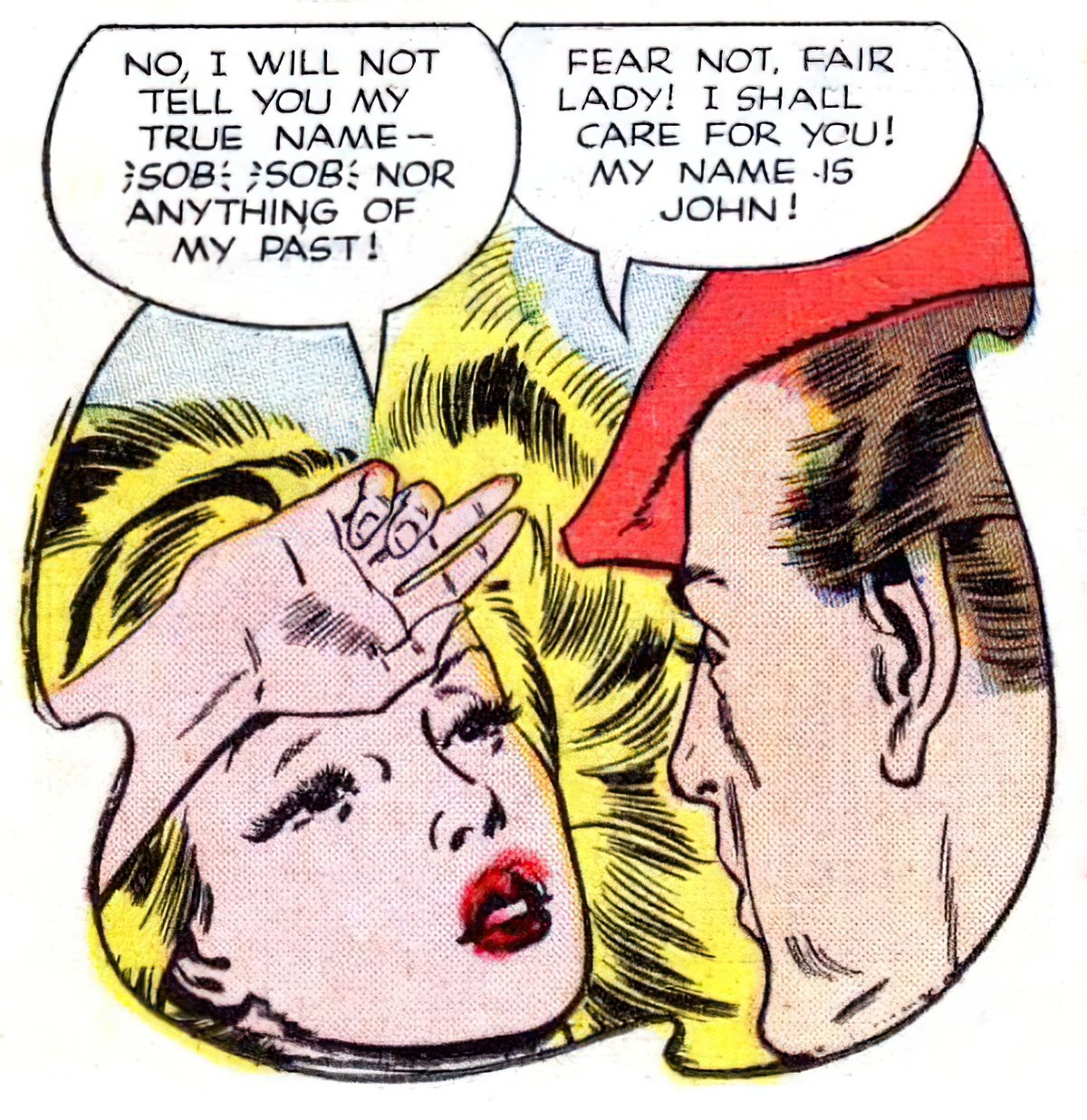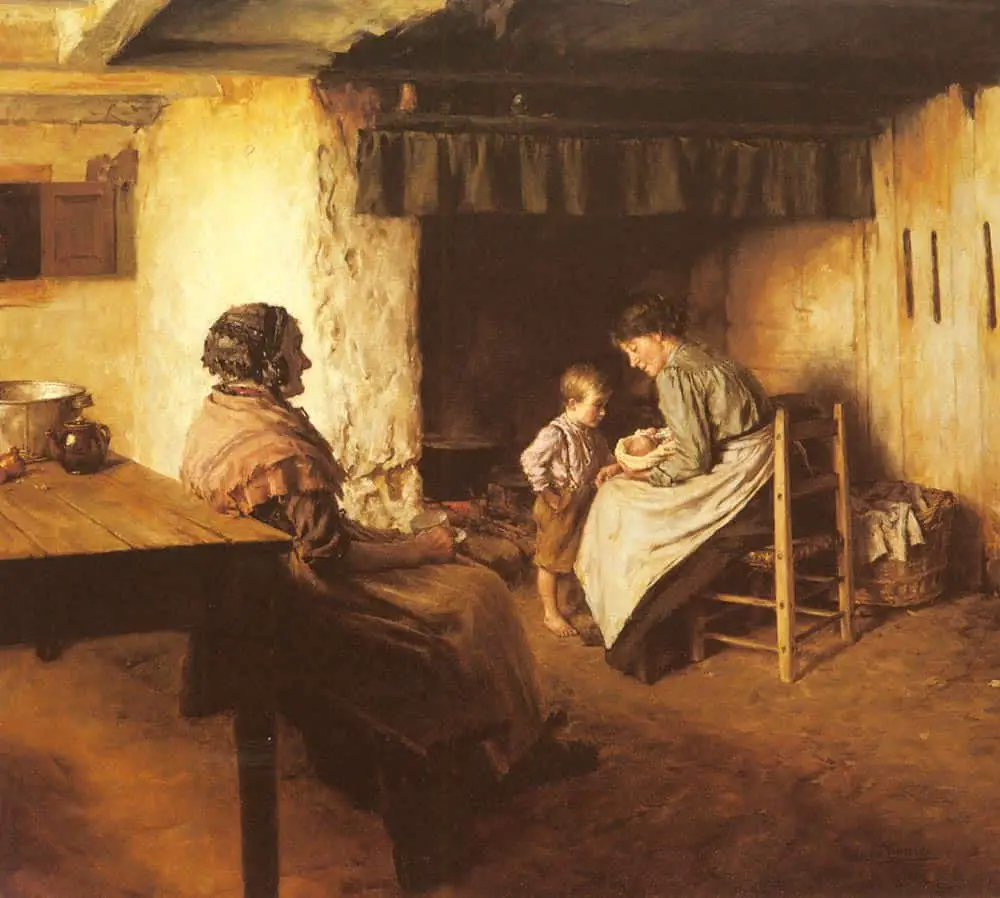In statu nascendi is a Latin phrase and means “in a state of being born”.
When a story begins in medias res (in the middle of things) and the character is given no backstory, we may say the character is presented to us in statu nascendi.
Modernist writers started this trend. You’ll see it in Katherine Mansfield’s short stories. A character’s backstory is kept right off the page. To the reader, it seems as if they have just been born.
However, we shouldn’t take this too literally. We assume collectively that a character who arrives without backstory still has a backstory. The difference is, there aren’t flashbacks. Backstory is suggested via telling details.
Short stories can be like photographs, catching people at some moment in their lives and trapping the memory for ever . There they are, smiling or frowning, looking sad, happy, serious, surprised … And behind those smiles and those frowns lie all the experience of life, the fears and delights, the hopes and the dreams
Katherine Mansfield
In effect, the narrator gives us nothing outside what’s happening right now. All our impressions of this character come from these particular events in the limited time scale of this particular story, with no flash backs, no flash forwards, and with no commentary about how they got here, or how everything turned out 20 years later.
PH.S.: Would you agree with the idea that because the short story is short it’s easier for its authors to deal with characters whose personalities are fairly simple or who have strong characteristics to be easily…
V.S.P.: That is perfectly true, yes. But even a simple character may have a moment of sudden drama in his daily life. H.E. Bates has one about a peasant who, as he ploughs a field, suddenly gets a message that his son had died. What the ploughman’s “character“ is, we don’t know. We don’t know what he is. We don’t know what his character is. He is a ploughman. We can guess what a labouring ploughman’s life is like. We can see he is a hard working man, that he is devoted to his job, and all the rest, but he can be made to seem a very powerful example of human being, of a humble human being with no characteristics except that he goes to work. Yet suddenly this blow occurs to him in the course of an ordinary day’s work. In an ordinary day there is this devastating message which he will have to live through as the day passes. That day will be one of the dramas in the life of an ordinary man. The Russian writers have had the sense of the natural yet inexorable flux of the day passing through ourselves. That itself disposes of the need of plot or the elaboration of character. As that excellent critic John Bayley has said about Russian writing in general: for the Russians “the doors and windows of the human house are wide open; their minds are living in the open…,“ in the passing hour. The story is, in essence, a poem.
interview with V.S. Pritchett
In statu nascendi characterisation is the preferred mode for the contemporary short story reader, who expects brevity and conciseness. This zero-backstory mode of characterisation is best explained if we look at what stories typically came before.
A good example is the fairy tale “Rapunzel”, as the Grimm brothers wrote it. Before the story gets to the story of Rapunzel herself, the reader is given numerous paragraphs of back story. Before we can understand Rapunzel as a character, storytellers of the 1700s and 1800s believed narratees would need to know all about the girl’s parents and how they met.
There’s a not-so-hidden ideology in stories that begin with a character’s ancestry: The importance of bloodline. Modern storytellers don’t necessarily believe a character’s bloodline says anything useful about them. A modern view: people are products of our environment. Paint the environment and you’ve painted a person.
There are other advantages to this form of characterisation.

ADVANTAGES TO WRITING WITHOUT BACKSTORY
- Brevity
- A mood of spontaneity
- If a character has little backstory, they become more universal. The character could be almost anyone, including you, the reader.
- Backstory always slows down narrative drive. Leaving it out avoids that pitfall, opening an aperture for more imagery and symbolism.
SEE HOW IT’S DONE IN THE LYRICAL SHORT STORY
- “The Wind Blows” by Katherine Mansfield
- “Carnation” by Katherine Mansfield
Header painting: Walter Langley – The New Arrival

